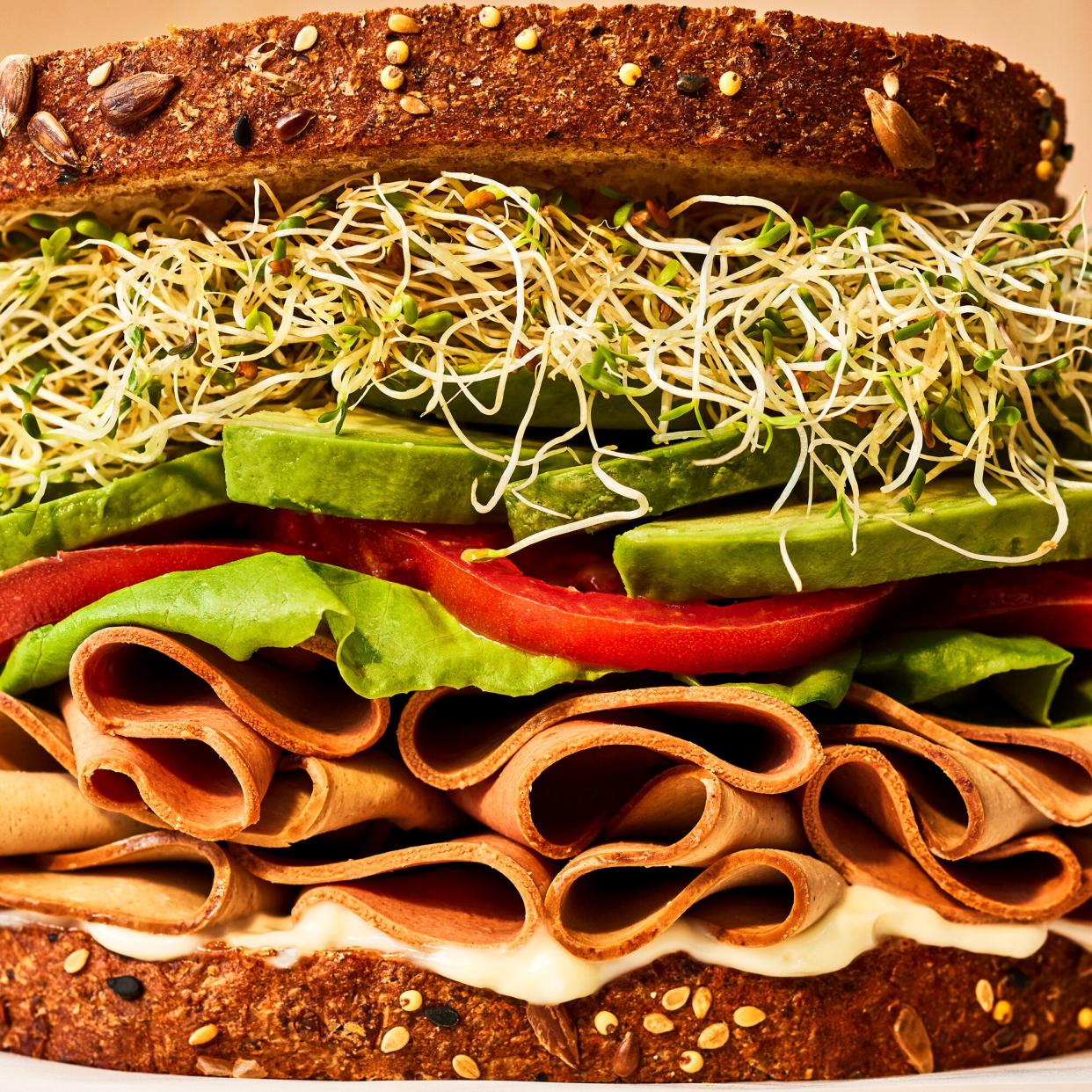F&W Game Changers: Prime Roots

Photo by Victor Protasio / Food Styling by Melissa Gray / Prop Styling by Christine Keely
Kimberlie Le had always been drawn to the deli case. As a kid growing up in Canada, and the daughter of 2014 MasterChef Vietnam runner up Chi Le, she remembers staring at the meats behind the shiny glass at her local grocery store, mesmerized by watching the deli slicer at work (while also snacking on free slices of turkey and ham). This love of meat is one reason why the words "Celebrate the culture of meat" run in big, bold letters on the homepage of Le's company, Prime Roots. For a business that produces all plant-based products, this phrase can make someone do a double take, and that is exactly what Le — its co-founder and CEO — intended.
READ MORE: Food & Wine Game Changers: 16 People and Companies Changing the Way We Eat and Drink
"At our core, we are all meat eaters. [At Prime Roots,] we love the taste and traditions and want to honor, remember, and be in tune with the culture around meat," Le said.
Le and her team are pulling apart that culture, adapting it for the mock meats industry. It's one of many ways that Prime Roots sets itself apart from the rest of the plant-based meats flooding the marketplace. The other is their ingredients and process, which hinge on the use of koji.
Koji is a mycelium, a fungus that's used to ferment products like soy sauce, fermented bean paste, sake, and miso, giving them their mouth-watering umami flavor. It also happens to have roots the same diameter and size as animal muscle fiber. Le and her co-founder and CTO, Joshua Nixon, tried making plant-based meats with all different types of mycelium and fermentation methods. They looked at koji on a microscopic level to understand its unique textural properties and saw how it replicated the texture of meat. Together, they grew koji in Le's home kitchen. After some successful koji experiments, the duo launched their company in 2017 with a popular koji-based salmon burger. (The company was then called Terramino Foods and later rebranded as Prime Roots.) In 2022, Prime Roots came out with a line of sliceable, koji-based deli meats like Cracked Pepper Koji Turkey and Sugar Shack Maple Koji Ham. While the flavors are delicious, the real miracle is in their texture. "Our 'meat' is the same density as real meat," Le said, and koji in a category of its own, separate from the pack of soy and gluten protein options saturating the mock meats market.
Although koji has been consumed in Japan for centuries, its potential impact on how we visualize modern day agriculture is more immediate. Le and her team, a mighty force of just thirty individuals, are consistently measuring their environmental impact, and have repeatedly found that they can grow a lot of food without increasing their environmental footprint. In a life cycle assessment of Prime Roots' entire process and supply chain done by a third party, Prime Roots outshines meat production metrics by a tremendous margin. "We are 90% to 99% better than conventional meat for water usage, land usage, [and] energy," Le said.
Why is this stuff called alternative? It could be called conventional.
While there was a wave of initial excitement for companies making the next mock burger or fake chicken nugget, some wonder if this revolution was just a passing trend. Prime Roots is here to tell us the complete opposite. They are planted at the front lines of the industry, connecting with chefs and tastemakers to share their story because what we eat as a country impacts us all. It's not an easy road to change a food system reliant on meat production, nor the minds of people used to putting meat on their menus. Some chefs have told Le that they came into Prime Roots tastings skeptical, and came out a believer in the product. Prime Roots heads confidently into the lion's den of the food industry knowing that they have created something unique, special, and most importantly, delicious.
Prime Roots' tagline is "make a better cut of meat," and doing better is what motivates Le each day. Health, environment, taste, and quality are the pillars which the company strives for to break the mock meat industry glass ceiling of being labeled as an alternative choice. "Better" refers to the meat itself, but also to its environmental, social, and cultural impact. "Why is this stuff called alternative?" Le asks. "It could be called conventional. It's about empowering [consumers to make] those choices, that's the missing link." A fantastic product is just the beginning. Prime Roots' corresponding message is what will continue to make waves.
Meet the 2022 Food & Wine Game Changers
Alexis Nikole Nelson | Bento Box | Chintan Pandya and Roni Mazumdar | Dwyane Wade | Ghetto Gastro | Jenny Dorsey | Momofuku Packaged Goods | No & Low | OXO | Prime Roots | Patagonia Provisions | Sanzo | Stephen Satterfield | World Central Kitchen | Yannick Benjamin

